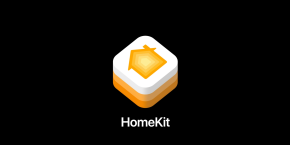
So much of Apple’s history is tied up between two periods: Pre-iPod and Post-iPod. The iPod took Apple from a computer company, and it set them up to become a consumer electronics company that would go on to become one of the most valuable companies in the world. What most people forget is that the iPod didn’t become the iPod until the iPod mini was released. The original iPod was $399, where the iPod mini had a lower price of $249.
Despite holding including 4GB of storage compared to the 20GB model that the “Classic” introduced that year, the iPod mini is what caused the iPod line to take off. The HomePod is at that exact point in its timeline. The HomePod needs its iPod mini moment.
HomeKit Weekly is a series focused on smart home accessories, automation tips and tricks, and everything to do with Apple’s smart home framework.
The HomePod was announced back in 2017, but it was delayed until 2018. We’re getting close to two years since the HomePod hit the shelves, and while the software has evolved, the actual hardware hasn’t. The HomePod started at $349, but it has since seen a price cut to $299. Over at 9to5Toys, it was around $199 over the Christmas holidays at various retailers. It’s clear Apple is letting retailers tinker with the price to see how it affects sales.
The HomePod, by all accounts, is a fantastic speaker, but if there is one thing we learned from the iPod, it’s that a large portion of users don’t care about the absolute best sound. I think it’s okay for Apple to target this market, but they’ve left a massive price umbrella under the HomePod, where folks like Sonos, Amazon, and Google can offer lower prices on lower-end products. What Apple needs for HomePod is to create a HomePod mini and expand out the product line. HomeKit is a fantastic platform, but every Christmas that goes by with Amazon selling $10 speakers connected to Alexa is another Christmas that Apple lets those folks further invest in another platform.
The HomePod mini

The HomePod mini should be $99, but it can be drastically smaller and worse quality than the current HomePod. It could provide HomeKit hub support, AirPlay 2, multi-room playback, and Siri access in every room of the house. We’ve got multiple Echo Dots around our house, but I don’t love them. Despite the claims that Alexa blows Siri away, I find it to be finicky. Devices that support both HomeKit and Alexa routinely stop working on Alexa until I reboot them. Opening skills can often be hit or miss in my experience.
Zac Hall had a smilar case for a HomePod Mini in April 2019.
I believe that’s what people mean when they say HomePod should cost $100 to $200. I don’t know how much it costs to make a HomePod (or how much it needs to cost to be worth making for Apple), but selling the current hardware for less than $200 doesn’t seem realistic.
What people who balk at the price of the current HomePod really want is a HomePod lineup, like the new iPad lineup (and the Amazon Echo lineup). HomePod mini at $99 and HomePod Air (or just call it HomePod) at $199 would make the current HomePod (call it HomePod Plus or HomePod Max) at $299 feel so much better.
He’s exactly right. What I want is the ability to have Siri in my bedroom to interact with HomeKit and play Apple Music. I am not going to spend $300 on multiple speakers around my house, and I don’t think I am alone here. Just as Apple has found compromises to make lower-cost iPhones and iPads, they need to do it with HomePod. It’s not just about selling HomePods, though. It’s about promoting HomeKit, explaining why HomeKit Secure Video is important, and promoting the overall ecosystem. The HomePod is a great speaker, but it’s time for the HomePod mini to take its rightful place as the mass-market Apple speaker.
FTC: We use income earning auto affiliate links. More.





Comments